English Dub Season Review: Domestic Girlfriend Season One
Spoilers for Season 1 below!
There’s a slew of anime shows out there with wacky, off-putting titles. Usually, they’re the fan-servicey types of shows that give anime a bad rep. A show with the title “Domestic Girlfriend” isn’t really something that leaves a good first impression, and there’s all kinds of assumptions that can be made about it based on the cover art. While it gives the impression that it might be some objectifying, harem anime, Domestic Girlfriend is actually a coming-of-age story. A really weird, soap opera-esque coming-of-age story.
Domestic Girlfriend tells the story of Natsuo, a high school student who has been in love with his teacher for years. Despite the odds of his feelings being doomed, Natsuo pursues his teacher, Hina, while also struggling to become a young novelist. Things get complicated when his father spontaneously remarries a woman who happens to be Hina’s mother, and Hina becomes his older stepsister. As if that wasn’t bad enough, things get even stickier when Natsuo realizes that Hina’s younger sister, Rui, is the same girl he had a one night stand with just days prior to the news. With both girls now living with him as his step-sisters, Natsuo must come face-to-face with the emotional repercussions caused by family ties.
With such a complex web of emotional situations, it begs a few questions: Is this anime just two-dimensional, harem, incest-coded bullsh*t? Or do all of these characters operate as real, living people would? Should you welcome Domestic Girlfriend into your home?
Let’s review.
Animation/Art Style
There’s nothing too remarkable of note when it comes to the art style. It’s pretty much standard for an anime style. Like most anime shows, the most exemplary part of the animation starts and ends with the opening and ending sequences. However, like most anime shows, the same effort isn’t put into the actual show itself. Not everyone suffers from same-face-syndrome, though, so at the very least, each character is identifiable. The only outstanding character design critique would be that Hina and Rui look nothing alike. It was pretty hard to believe they were blood related, and that Natsuo was somehow reminded of Hina when initially speaking to Rui in the first episode.
The most unique part of the animation is showcased when Natsuo writes his short novel in the very last episode. Watching the words come to life around him was a fitting and aesthetically pleasing stylistic choice. They could have made this a reoccurring choice throughout the show whenever Natsuo was writing, though, for a stronger symbolic feel. Other than that (and some beautiful backgrounds) there wasn’t too much that set it apart from other shows.
Plot
Obviously, there’s a lot of drama here.
The plot of this anime is vaguely sexual (and scandalous) but it doesn’t really do what one would expect. Natsuo’s passion for Hina (and memories of Rui) aren’t poised for the viewer to sexualize them. All graphic scenes and imagery in the show were portrayed with a sense of realness and respect to the actual situations at hand. Meaning: this show didn’t romanticize a relationship between an underage student and their teacher. It depicted what a scenario like that would really be like.
Throughout the series, the consequences of Natsuo’s feelings for Hina (and eventually, their relationship) are constantly thrown in the characters’ faces. While Rui’s feelings for Natsuo wind up developing past a simple one-night-stand, Hina must come to terms with her own irresponsibility with her own feelings for Natsuo. As the series progresses, Hina and Natsuo get together, at the expense of Rui, who has to deal with the emotional repercussions. Finally, though, Hina gets a wake-up call as to what being an adult truly means, and breaks contact with Natsuo — moving out. The season ends with Natsuo overcoming the heartbreak of losing Hina, while simultaneously being awarded as a writer. While his feelings for her still linger, Rui promises Natsuo that she won’t let his feelings for Hina get in the way of pursuing him anymore.
It’s clear that Hina also still has lingering feelings for Natsuo (as she secretly keeps his writing with her) but that she’s accepted her role as an adult. While she’s stopped her irresponsible (and illegal) behavior, this ending — where both Natsuo and Hina still clearly have feelings for each other — sets up the same exact conflict for a future season. Hopefully, if Domestic Girlfriend continues, they won’t go this route. No one wants to see a catfight between sisters who love each other.
Overall, it felt a lot like watching a soap opera. The characters were pretty rich, but the happenstances of the plot felt melodramatic.
Characters
Surprisingly, these were some pretty fleshed out characters.
While Natsuo’s main conflict was his situation with Hina and Rui, he also had another clear, internal conflict. It’s a case of “Man VS Self” — Natsuo has to deal with the consequences of being seen as a child, while in the coming-of-age stages of becoming a young man. This was executed really well — his actions highlight that of a child, thinking that a relationship between a minor and teacher could work out, but his character development near the end highlighted his personal growth, with some very human leftover feelings for Hina. Natsuo is constantly seen as a “child” by others — including Hina, who explicitly hurts him by calling him one. Therefore, Natsuo constantly tries to disprove every allegation that he is a child, by being stubborn in his pursuits.
Rui is an excellent foil to Natsuo, because, like Natsuo, Rui is also tired of being seen as a child. She (just like Natsuo) is criticized by Hina for not being able to “understand” adulthood. Rui’s coming-of-age came in the form of her experiences with Natsuo. When she initially asks Natsuo to have sex with her, it’s for the sole purpose of being able to combat Hina’s insinuation that her inexperience makes her unintelligent. Coincidentally, one could say that she’s the most intelligent member of the trio. Her firm grasp on her identity and beliefs makes Hina envy her. This is ironic, because it highlights Hina’s unreliable words about the fact that she’s more mature than Rui.
However, the most complex character is, without a doubt, Hina. Throughout the series, we see her “BoJacking” it (not to be confused with the scene where she masturbates). She (like BoJack Horseman) is consistently seen contradicting herself, and making detrimental life choices at every turn. She gets into an affair, is a borderline alcoholic, and becomes a straight up pedophile, nearly marrying Natsuo in secret. She totes a ton of talk about “being an adult,” but is the most immature character in the show — to a certain point. Once she finally wakes up and realizes being in an affair is wrong, she cuts ties with Shu for the sake of her familial relationships. The parallel between Hina and Natsuo is interesting, because Hina also had feelings for Shu while she was his student. Unlike Shu, though, Hina pursues a relationship with Natsuo illegally, knowing it would be detrimental to her life. She’s self-sabotaging in a lot of ways, but finally has some positive character development when she breaks up with Natsuo and gets her sh*t together. Considering she still has some obvious feelings for him, hopefully, she won’t fall back into this if there’s another season. If not, it’s off to the slammer with her!
Honorable mention: Kobayashi was the best side character in the show. A former Yakuza member who fell in love with another male Yazuka member, who left his gangster life behind to start a sweet cafe? Where’s his show!? Not only was he interesting, but he was entertaining — and a pretty good LGBT character.
(Honorable, honorable mentions: Hina/Rui/Natsuo’s adorable parents, and Momo, who breaks the audience’s heart one episode and then is never focused on again.)
Sound Design
The voice acting wasn’t bad — Hilary Haag was easily recognizable in the show. There were moments where Natsuo’s voice would have a slight mumble to it (recognizable in his very first line of dialogue) but other than that, there weren’t noteworthy downsides. It’s always refreshing to hear a teenage anime girl have an alto voice instead of the normal, high-pitched baby voice we usually get. This is why Rui’s voice performance was great to hear. Kobayashi’s voice is fun and recognizable as his own character, too.
Other than the voice acting, the sound design would sometimes seem a little dead, but the music added into episodic scenes really woke things up sometimes (and added some of that sweet melodrama this show loves so much.)
Did it do its genre justice?
This anime is classified as a shonen — targeted to teenage boys (like Natsuo). It’s rare to see a romance/drama marketed to young boys, so it’s definitely different in that sense. It’s not a show one would picture as “shonen.” Granted, while it may appeal to a “male fantasy” of some kind, there’s some merit in how diverse and fleshed out the characters are. It serves as a cautionary tale, at the very least. While the core story depicts the coming-of-age of a teenage boy, in a sense, it was Natsuo’s, Rui’s, and Hina’s coming-of-age stories, that people of all genders might be able to relate to.
At the end of the day, Domestic Girlfriend is a soap opera full of melodrama, but it does have pretty fleshed out characters. Its a gender-swapped Lolita style of story, in a way. Its cliffhanger ending leaves a lot of character development in suspense, so on the chance it has another season, more to the story might be its detriment or its blessing.
It’s not an anime with the biggest recommendability factor out there, but to those who love soap operas: give it a watch.

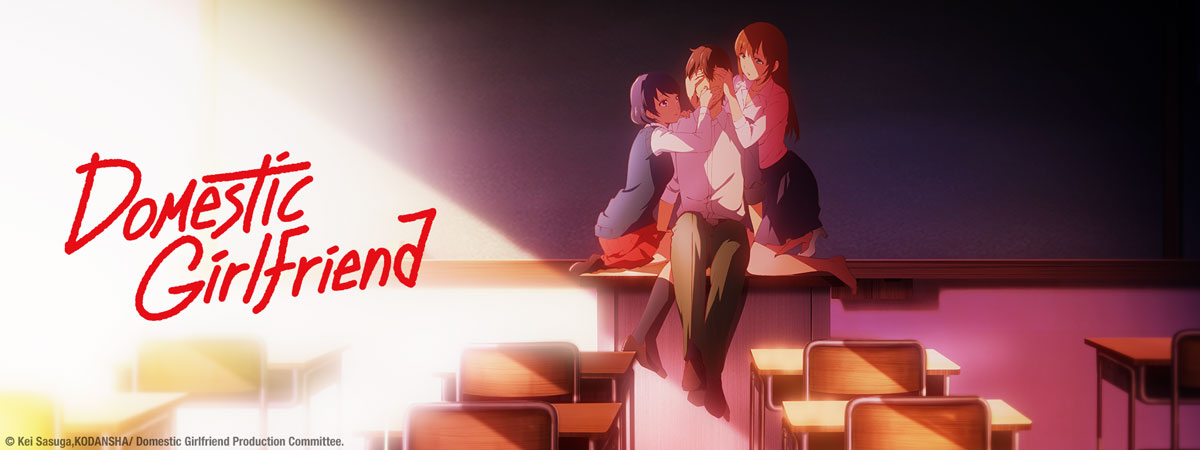
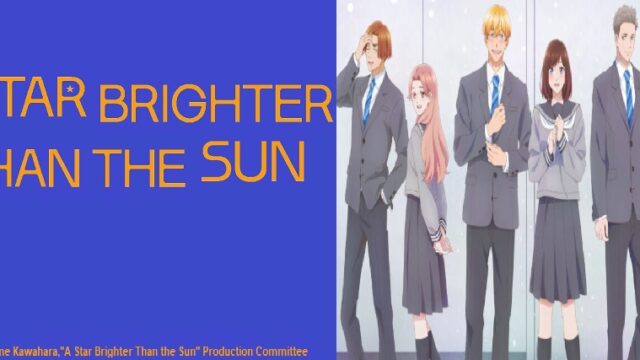
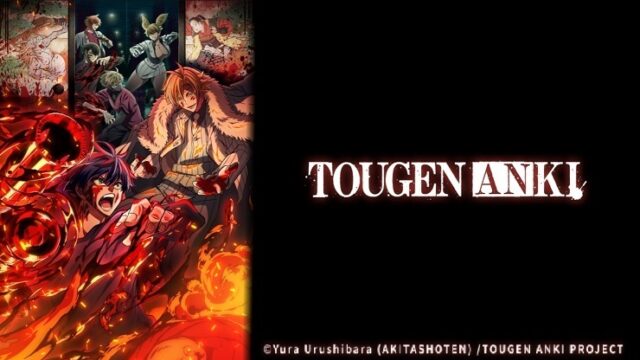
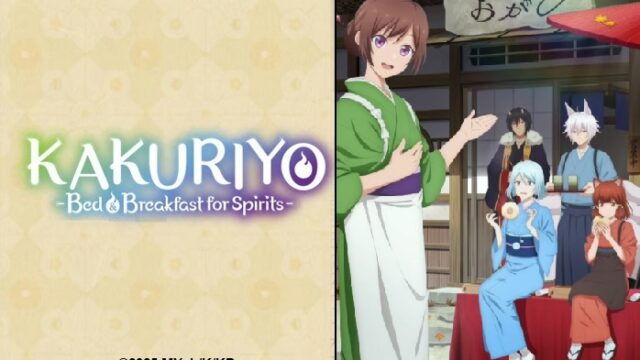
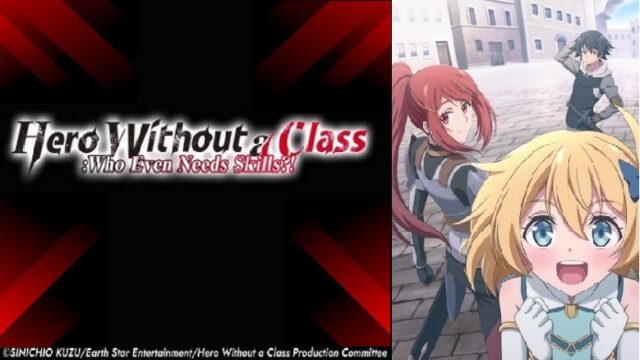








"There are also other characters that come and go (also owned by the Warner Bros. Discovery conglomerate media company)."
Huh. Is that just referring to other characters from the show itself, or is this implying that the new season is going to have cameos from other WBD IPs